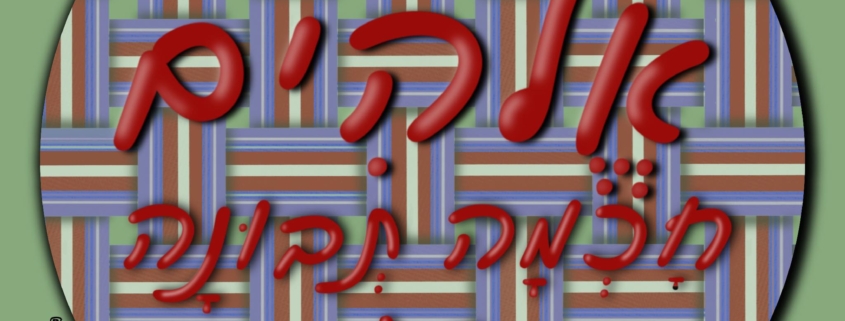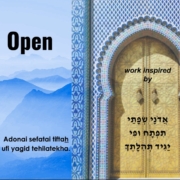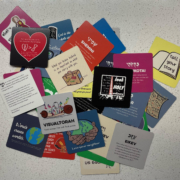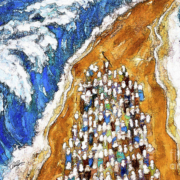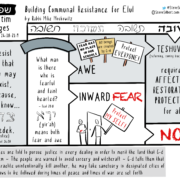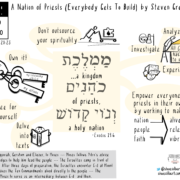Ki Tisa: Reproductive Justice and Wisdom of Heart
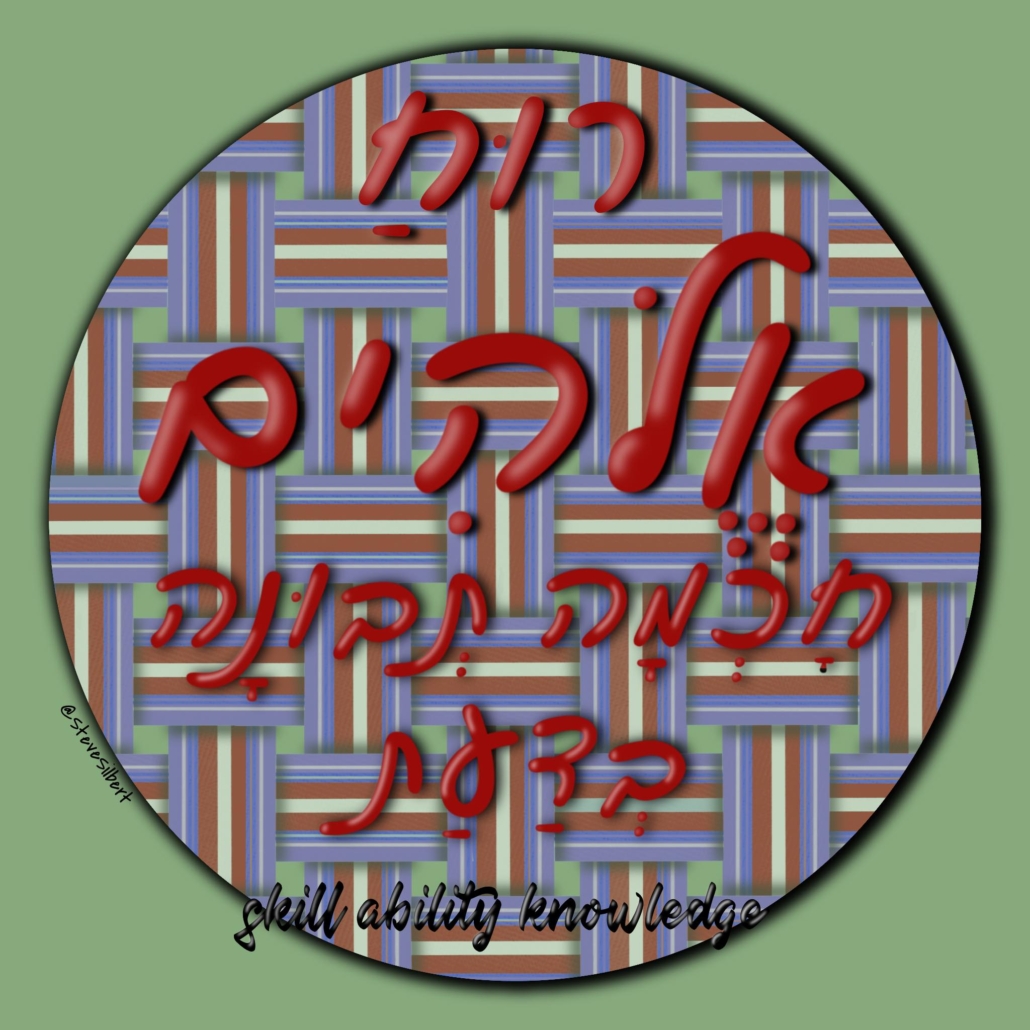
Part of an ongoing series that explores Torah through an ethic of social justice and building a world worthy of the Divine.
This week’s Torah portion, Ki Tisa, as well as the next two Torah portions, Vayakheil and P’kudei, sometimes read together, continue with the instructions for building the Tabernacle.
We are introduced to Bezalel, the artisan whom God selects to design and oversee the construction of the Tabernacle of the Israelites in the desert. God selects Bezalel, the great-grandson of Miriam, to manage this grand project because, “I have endowed him with a divine spirit (“ruach Elohim”), of skill: “chochma,” ability: “t’vunah,” and knowledge: “da’at.”
Moreover, God “has also granted skill to all who are skillful, that they may make everything that I have commanded you: the Tent of Meeting, the Ark for the Pact and the cover upon it, and all the furnishings of the Tent…” including the lampstand, the altar of incense and the altar of burnt offering, the priestly vestments, amongst other things.
What is the significance that God, “Granted skill to all who are skillful?”
In the Hebrew, we read: “Ooh v’lev kol-chacham-lev natati chochma.” In this instance, “lev” used with “chacham” or “chochma” is translated as “skill.” Chochma is often translated as “wisdom”. In parashat Vayakheil, Moses enjoins the Israelite community, “And let all among you who are skilled come and make all that Adonai has commanded: “Chacham Lev: Wisdom of heart.”
In this Torah portion, Ki Tisa, and in next week’s, Vayakheil, we also see the word “lev” used in conjunction with the word, “n’div.”
What is “n’div”? Dr. Carol Myers, in her commentary from The Torah: A Women’s Commentary, observes that when the Hebrew root letters “nun-dalet-Bet/vet,” which means to be willing, or to be moved, are used with the word “heart,” (“lev,”) it treats the heart as the source of human motivation. In biblical antiquity, people believed the heart to be the identity or essence of a person.” (P. 524.)
The gifts for God that the people are commanded to bring are motivated by their hearts to bring them, in other words, they are not taxes imposed on the people but rather gifts of the heart—donations of free will.
We learn from this that wisdom does not only have an intellectual component, it also has an emotive component which, with the right motivation and mentoring, can result in what we think of in English as “skill.”
Moses issues a call to both men and women, all those who are skilled from the entire Israelite community, “kol adat b’nei Yisrael,” to assist in the myriad duties required to build and furnish the Tabernacle.
The women were motivated by the heart (“n’div lev”) to donate their gold and other precious resources that they owned. They also possessed unique skills—”v’chol isha Chachmat lev”—every woman with wisdom of the heart. The women were experts at spinning, they “spun with their own hands, and brought what they had spun, in blue, purple, and crimson yarns, and in fine linens.” (35:25-26)
Dr. Myers observes: “Because it is such a time-consuming task, women typically gathered together to spin; such gender-specific group activities likely contributed to female bonding and networks.” (ibid, p. 527)
Both skill and motivation are required to build something unique. Building a Tabernacle is like building a community—a very sacred community. Women’s skills and wisdom used in the weaving of adornments for the biblical Tabernacle may also be used in support of building a community where justice, equity and dignity take root. What are our pressing issues to address collaboratively in our community?
The overturning of Roe vs Wade in the United States left many seeking to understand the repercussions and wanting to take action. To address this issue, the Women’s Advocacy Group at Holy Blossom brought together a panel of experts who shared their thoughts on some key questions that people are asking right now. How will this decision impact reproductive justice? What is the role of equity and dignity in reproductive justice? Is access equitable? How can it be improved? This webinar discussion was sponsored by Women of Holy Blossom and presented in partnership with Reform Jewish Community of Canada and Women of Reform Judaism.
On September 19, 2022, many of us gathered over Zoom for a thought-provoking discussion moderated by Rabbi Yael Splansky, Senior Rabbi, about the state of reproductive rights and access within Canada and the United States. Each panellist brought her unique perspective and wove her wisdom to the conversation. We heard from Dr. Martha Paynter, a nurse practitioner and professor at the University of New Brunswick, who is the founder of Wellness Within and author of the recently published book, From Abortion to Abolition, which explores the history of abortion decriminalization and advocacy for access in Canada. We also heard from Kat Owens, a lawyer for the Women’s Legal Education and Action Fund and Project Director for the Reproductive Justice Project which is looking to advance reproductive justice across Canada. Adding a specifically Jewish thread to the collaboration, was Rabbi Emily Langowitz, the Jewish Engagement and Learning Manager at the Union for Reform Judaism and co-author of “Abortion and Reproductive Justice: A Jewish Perspective” from the recently published Social Justice Torah Commentary.
Together they shared their skill and wisdom about the current state of the law regarding reproductive justice and commented on the reality of access to abortion. The panel also discussed the need to look at reproductive health in a more holistic manner including education, contraception, and raising a child with dignity. While there are strong religious voices speaking out against abortion, Rabbi Splansky and Rabbi Langowitz shared biblical texts to illustrate how pro-choice values are supported by Jewish teachings.
Concluding the discussion, the panel emphasized the importance for everyone to educate themselves on the nature of abortion, to understand the Jewish perspective and converse with each other about reproductive health and justice. If you would like to view the event, the recording can be found at the following link. This informative discussion provides a thoughtful place to begin, or continue, this important learning toward building a world based on greater social justice.
Women of Reform Judaism is a leading advocate for reproductive rights and health and continues to oppose state, provincial and federal restrictions that limit access to birth control and safe abortion services. Infused with Reform Jewish values, we inform and provide opportunities for action. On our reproductive health and rights web page, you will find useful guides and other resources to help Reform synagogue sisterhoods, congregations, and individuals mobilize and advocate for reproductive health and rights in your communities.
Rabbi Emily Langowitz offered this prayer for the 50th anniversary of Roe v.Wade:
Source of Life, Deep Well of Being:
Be with us now as we mark this day; the dread it brings
And its sacred power to compel us.
Help us to hold our sorrow and our resolve in equal measure.
The arc of the moral universe is long, we know,
And sometimes it bends
backwards.
So we must turn it, and turn it, and turn it again
Striving ever onward toward a world built on justice
And free from shame.
Comfort us, Compassionate One, in our sorrow for what has been lost.
Strengthen us, Rock and Redeemer, in our work to find it once more.
And give us hope that our nation and its laws might once again reflect
that each of us are Creators in the divine image of our Creator:
Able to speak our truths into being
Able to shape our worlds as we choose
Free to name, to imagine, to discern
What is good
What is good
What is very good.
Rabbi Langowitz reminds us that we must keep “striving ever onward toward a world built on justice” as we use our skills and wisdom — “v’chol isha Chachmat lev” with the motivation of “n’div lev” to build our tabernacle, our community of justice, where God can dwell among us.
May we be blessed with much wisdom of the heart and continued strength. Ken Y’hi Ratzon.
Thank you to Cheryl Sylvester, Co-Chair of the Women’s Advocacy Group at Holy Blossom Temple for her contribution and support in writing this post.
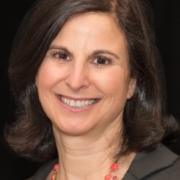
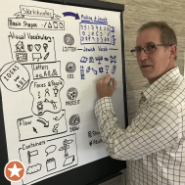
Sara Charney is President of Women of Reform Judaism. This is her first post for Builders Blog.
Illustrator Steve Silbert, a member of the Bayit board of directors, is Lead Builder at Bayit Games and recently released a series of Passover innovations.

